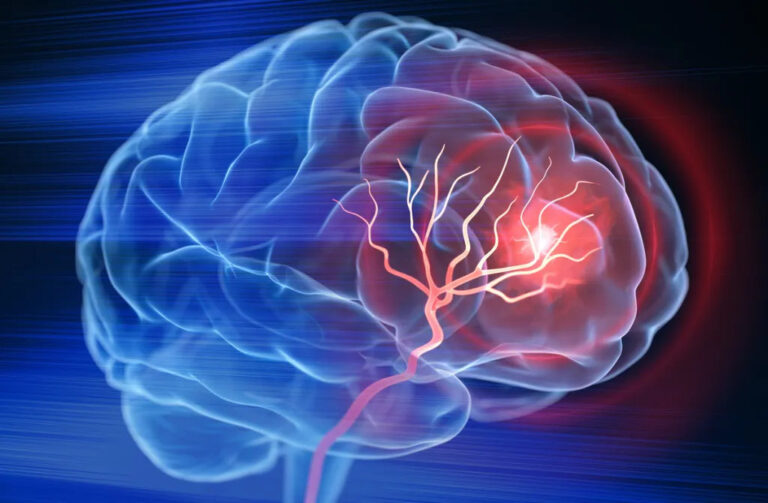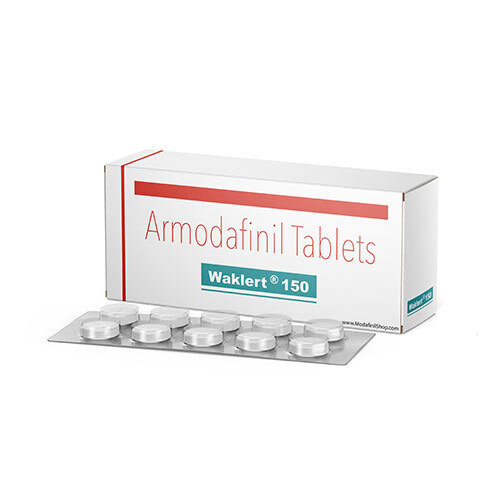Can Modafinil Be an Off-Label Treatment for Jet Lag Disorder? Evidence, Risks, and Safer Alternatives
Jet lag disorder happens when your body clock and the local time are out of sync after crossing time zones. Some travelers ask if modafinil, a prescription wakefulness drug, can help. The short answer is that modafinil may reduce daytime sleepiness for a day or two, but it does not fix the body clock. It is not approved by the United States Food and Drug Administration (FDA) for jet lag, and it has important risks that require medical supervision (U.S. Food and Drug Administration, 2015).
What is jet lag disorder?
Jet lag disorder is a circadian rhythm problem that follows rapid travel across time zones. Symptoms include daytime sleepiness, fatigue, poor concentration, and trouble sleeping at night. Severity depends on how many time zones you cross and the direction of travel. Eastward trips are usually harder because advancing the clock takes longer than delaying it. A common rule of thumb is about one day of adjustment per time zone crossed, with individual variation (Sack, 2009).
How does modafinil work?
Modafinil is a wakefulness-promoting medicine. It weakly blocks the dopamine transporter and likely increases activity in orexin and histamine systems in the brain. The typical onset is within a few hours, and effects can last up to about 15 hours. It is approved for narcolepsy, obstructive sleep apnea (OSA), and shift work disorder (SWD), but not for jet lag. Dosing for approved uses is generally 200 mg once daily, though dosing must be individualized by a clinician (Greenblatt & Adams, 2023; U.S. Food and Drug Administration, 2015).
What does the evidence say about modafinil for jet lag?
The main clinical trial
- A phase 3, randomized, double-blind, placebo-controlled study tested armodafinil, the R-isomer of modafinil, in 427 adults who flew east across six time zones.
- Armodafinil 150 mg each morning increased mean sleep latency on the Multiple Sleep Latency Test (MSLT) over the first two days, and participants rated jet lag symptoms as less severe than placebo.
- Common side effects included headache and nausea. Palpitations were also reported.
- The study was funded by the drug manufacturer, which is important context when judging results (Rosenberg et al., 2010).
Independent reviews
- A clinical review concluded evidence for using modafinil or armodafinil in jet lag is limited to that one short trial. Benefits were modest and short term. More research is needed to define who benefits and at what risk (McCarty, 2010).
- Reviews of jet lag management agree that alerting drugs can mask sleepiness but they do not shift the body clock. Realignment requires light timing, melatonin, and schedule management (Sack, 2009; Cingi et al., 2018).
Bottom line
- Modafinil or armodafinil can help you feel more awake for a day or two after an eastward flight.
- These drugs do not speed circadian adjustment and are not a cure for jet lag (Rosenberg et al., 2010; McCarty, 2010).
Potential benefits
- Less daytime sleepiness and fatigue during short trips.
- Better reaction time and attention in the local daytime.
- More stable alertness than large doses of caffeine for some people (Rosenberg et al., 2010; Greenblatt & Adams, 2023).
Risks and side effects
Serious risks require a careful medical review before use.
- Severe skin reactions, including Stevens-Johnson syndrome, though rare, can be life-threatening. Stop the drug and seek care at the first sign of rash (U.S. Food and Drug Administration, 2015).
- Psychiatric symptoms such as anxiety, agitation, mania, or hallucinations can occur. People with a history of these problems need extra caution (U.S. Food and Drug Administration, 2015).
- Cardiovascular effects such as palpitations and blood pressure changes are possible. Those with heart disease need close monitoring (U.S. Food and Drug Administration, 2015).
- Drug interactions through the liver enzyme system can affect birth control pills, cyclosporine, and other medicines. Alternative contraception is needed during treatment and for one month after stopping (U.S. Food and Drug Administration, 2015).
Common side effects include headache, nausea, decreased appetite, insomnia, and anxiety. Older adults and people with liver problems may need lower doses for approved uses and should not self-medicate for jet lag (Greenblatt & Adams, 2023; U.S. Food and Drug Administration, 2015).
Who should avoid modafinil for jet lag?
- People with a history of severe skin reactions to medicines.
- People with uncontrolled heart disease.
- People with bipolar disorder, psychosis, or severe anxiety without specialist input.
- Pregnant or breastfeeding individuals unless a specialist advises otherwise.
- Children and adolescents, since safety is not established (U.S. Food and Drug Administration, 2015; Greenblatt & Adams, 2023).
Safer first-line alternatives
Timed light exposure
- Use bright morning light after eastward travel to advance your clock.
- Use bright evening light after westward travel to delay your clock.
- Avoid light at the wrong time, including limiting device light at night. Correctly timed light is one of the most effective tools for shifting circadian phase (Sack, 2009).
Melatonin
- Short-acting melatonin taken in the local evening can help shift the clock and improve sleep onset. Typical doses are 0.5 to 3 mg. Timing matters more than dose. Ask a clinician if you take other medicines (Sack, 2009; Cingi et al., 2018).
Melatonin receptor agonists
- Ramelteon and agomelatine act on melatonin receptors and may help circadian adjustment when timed correctly, based on limited evidence and clinical experience (Cingi et al., 2018).
Gradual schedule shifts
- Move bedtime and wake time by 30 to 60 minutes toward the destination time each day for a few days before travel. Combine with light and melatonin for better results (Sack, 2009).
If a clinician prescribes modafinil off label for jet lag
- Confirm it is appropriate for you given your health and medicines.
- Use the smallest effective amount for the shortest time.
- Take it in the local morning to support daytime function, not at night.
- Do not use it to drive when sleepy or to skip sleep. It reduces sleepiness but does not restore normal alertness for everyone. Reassess daily (U.S. Food and Drug Administration, 2015; Greenblatt & Adams, 2023).
Travel and legal considerations
- Carry prescriptions in original containers. Some countries restrict modafinil importation. Check local rules before travel.
- If anti-malarials, anticoagulants, antiepileptics, or hormonal contraceptives are used, ask about interactions in advance. Use backup contraception while taking modafinil and for one month after stopping due to reduced effectiveness of hormonal products (U.S. Food and Drug Administration, 2015).
Practical jet lag plan
- Map your trip direction and time zones. Plan light exposure times for the new location.
- Start shifting sleep and meals 2 to 3 days before travel if possible.
- Use morning light after eastward flights and evening light after westward flights.
- Consider melatonin in the local evening for a few nights. Time it carefully.
- Reserve modafinil for short, high-demand trips only if a clinician agrees, and monitor for side effects (Sack, 2009; Cingi et al., 2018; Greenblatt & Adams, 2023; U.S. Food and Drug Administration, 2015).
FAQ
Can modafinil fix the body clock after a long flight?
No. It can reduce daytime sleepiness for a short period but it does not speed circadian realignment. Light and melatonin are needed to shift the clock (Rosenberg et al., 2010; Sack, 2009).
Is armodafinil better than modafinil for jet lag?
Evidence comes from one trial of armodafinil after eastbound flights. It showed improved objective alertness on days 1 to 2. Comparable trials with modafinil for jet lag are lacking. Benefits are short term and modest (Rosenberg et al., 2010; McCarty, 2010).
Can I take modafinil at night to stay awake after landing?
No. Taking it at night can worsen insomnia and delay adjustment. If prescribed, it should be taken in the local morning and only under medical supervision (U.S. Food and Drug Administration, 2015; Greenblatt & Adams, 2023).
What is the safest first step if I get bad jet lag?
Plan light exposure and timing, use melatonin in the evening for a few nights, and adjust your schedule gradually. These steps directly target the cause of jet lag and have low risk when used correctly (Sack, 2009; Cingi et al., 2018).
References
- Cingi, C., Emre, I. E., & Muluk, N. B. (2018). Jetlag related sleep problems and their management: A review. Travel Medicine and Infectious Disease, 24, 59–64. https://doi.org/10.1016/j.tmaid.2018.05.008
- Greenblatt, K., & Adams, N. (2023). Modafinil. In StatPearls [Internet]. Treasure Island, FL: StatPearls Publishing; 2025 Jan–. https://www.ncbi.nlm.nih.gov/books/NBK531476/
- McCarty, D. E. (2010). Ready for takeoff? A critical review of armodafinil and modafinil for the treatment of sleepiness associated with jet lag. Nature and Science of Sleep, 2, 85–94. https://doi.org/10.2147/nss.s6680
- Rosenberg, R. P., Bogan, R. K., Tiller, J. M., Yang, R., Youakim, J. M., Earl, C. Q., & Roth, T. (2010). A phase 3, double-blind, randomized, placebo-controlled study of armodafinil for excessive sleepiness associated with jet lag disorder. Mayo Clinic Proceedings, 85(7), 630–638. https://doi.org/10.4065/mcp.2009.0778
- Sack, R. L. (2009). The pathophysiology of jet lag. Travel Medicine and Infectious Disease, 7(2), 102–110. https://doi.org/10.1016/j.tmaid.2009.01.006
- U.S. Food and Drug Administration. (2015). PROVIGIL® (modafinil) tablets, for oral use, C-IV [Prescribing information]. U.S. Department of Health and Human Services. https://www.accessdata.fda.gov/drugsatfda_docs/label/2015/020717s037s038lbl.pdf








